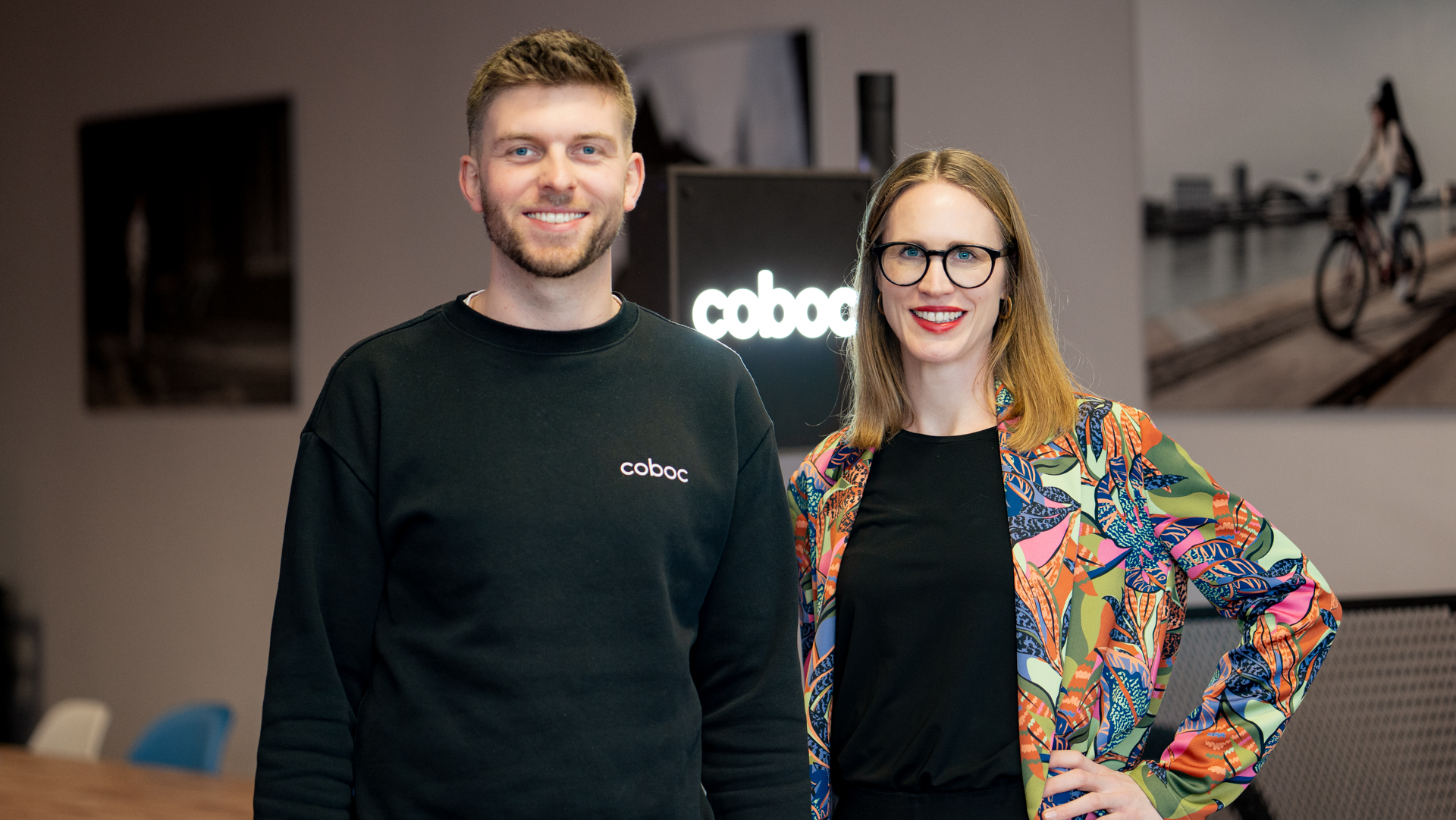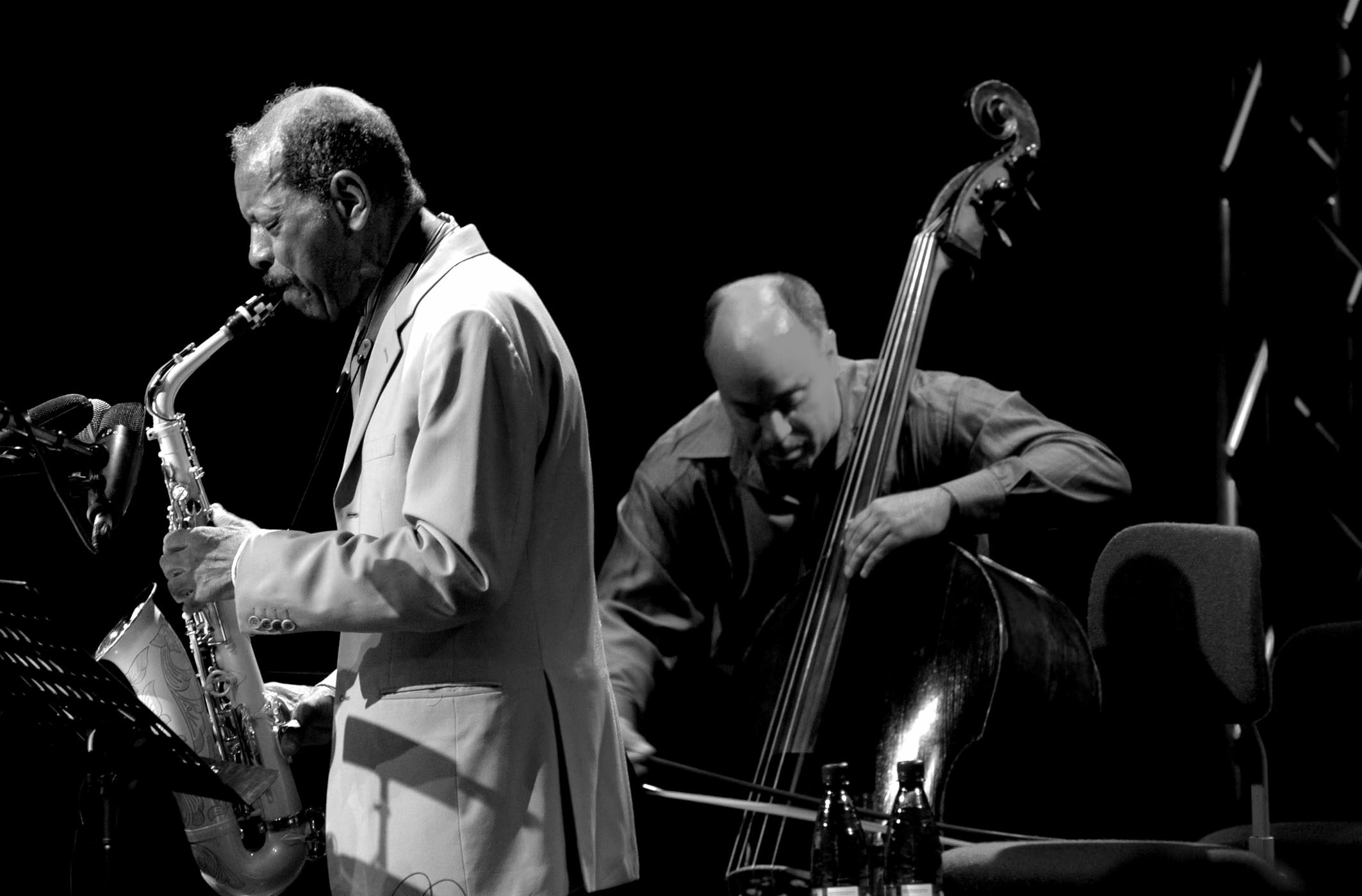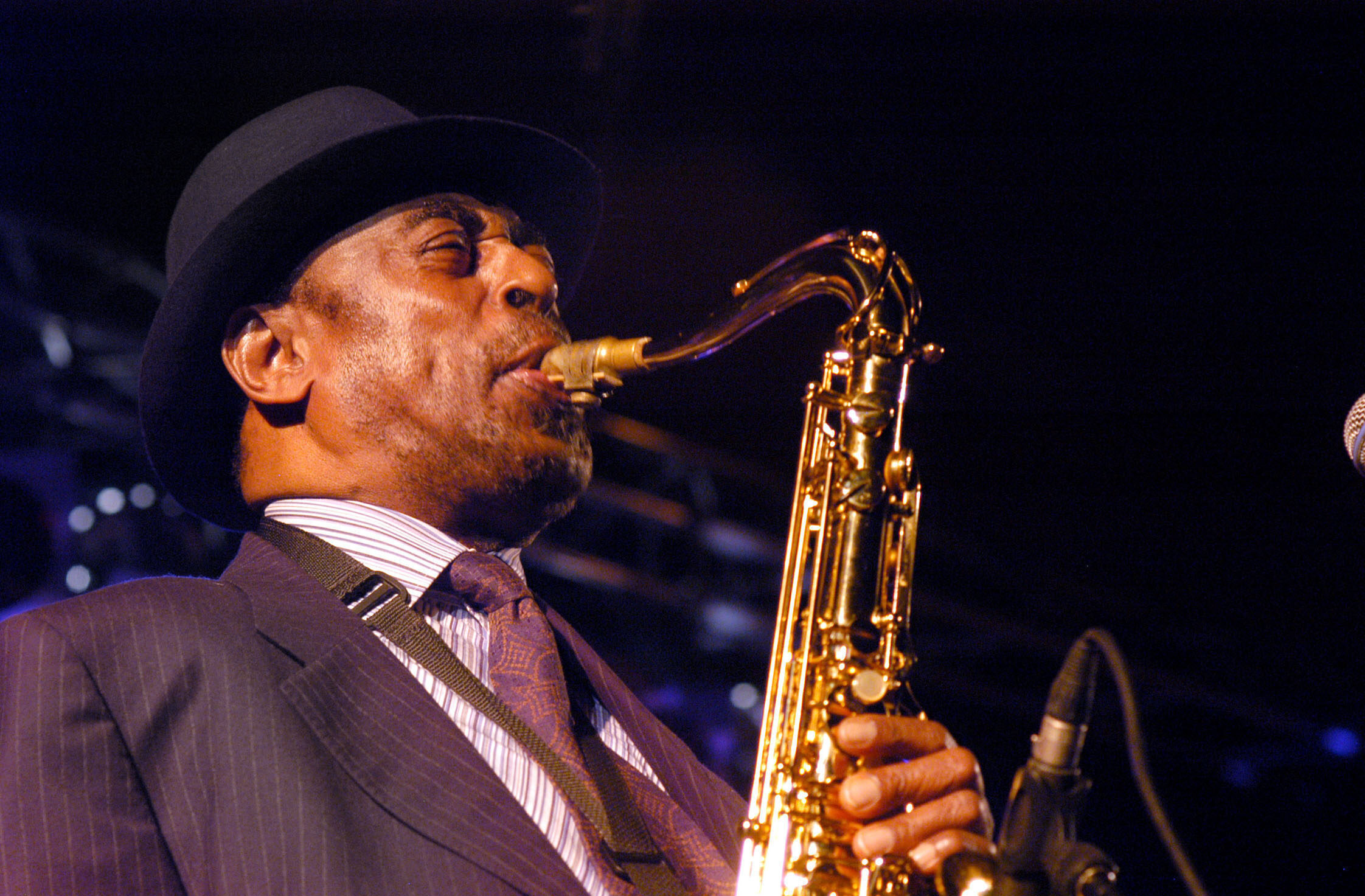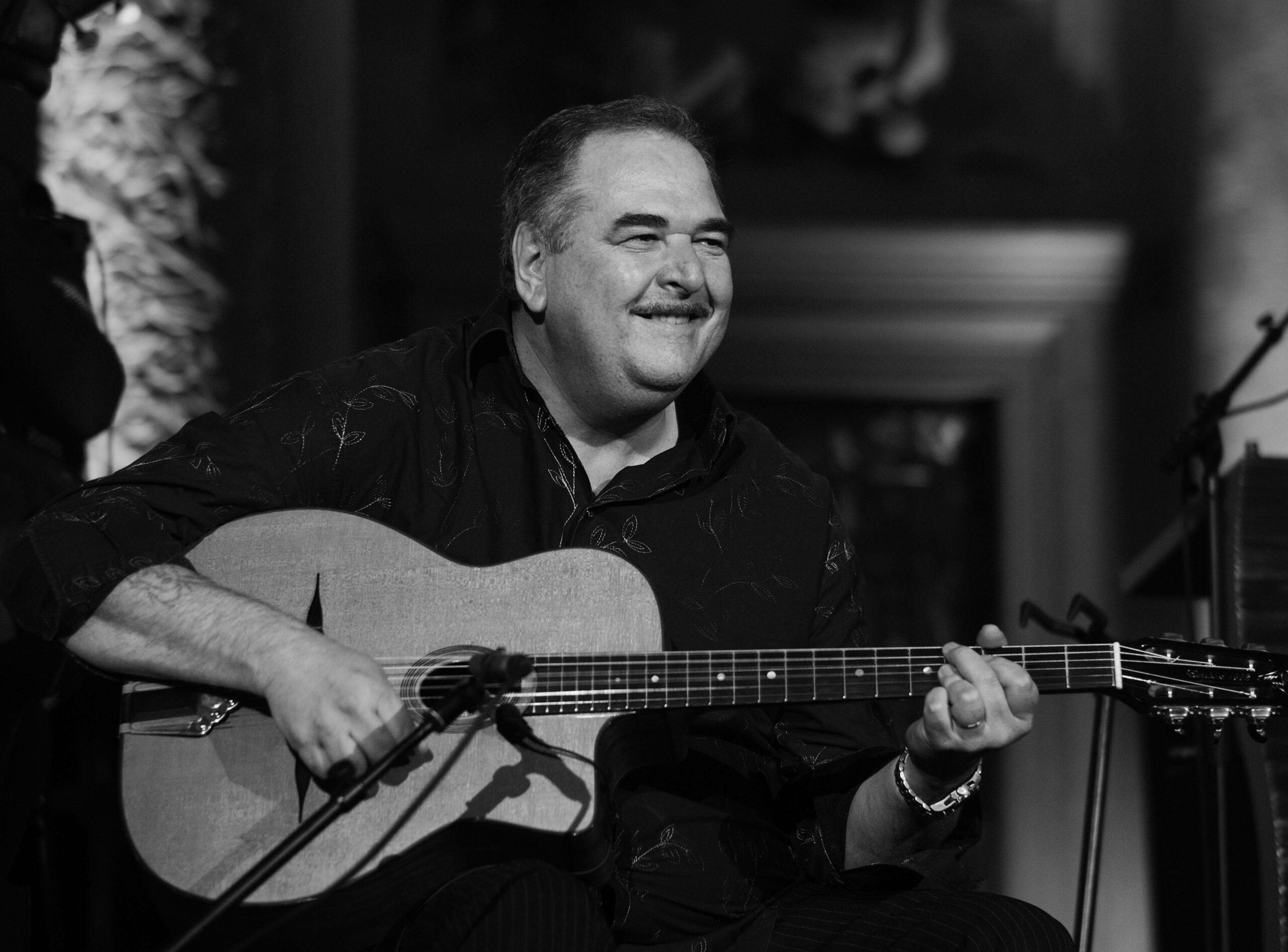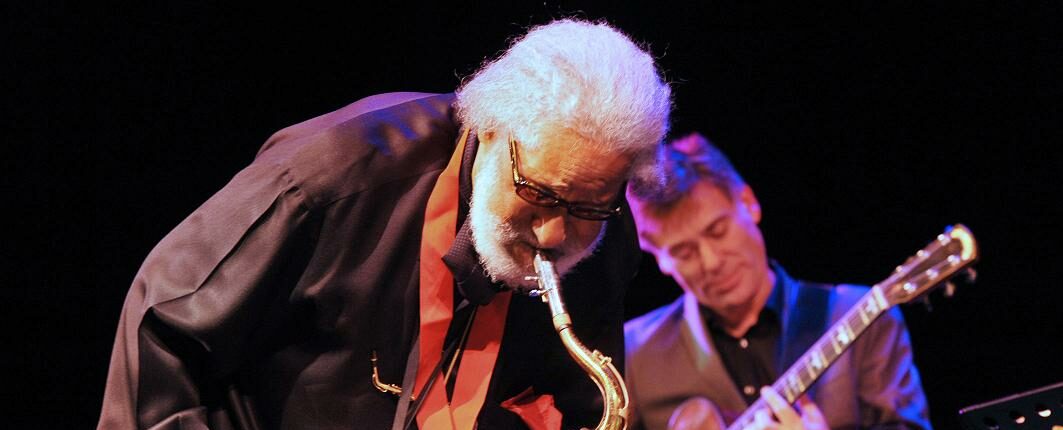Eric Bibb, Harrison Kennedy and Ruthie Foster gave an interview as part of our 2015 festival. Bibb, Kennedy and Foster address the roots of the country blues genre through their music, and with it themes of equality and social change. Below is the original interview. (Interview from 2015)
It is a rare event when three legends of contemporary blues perform together in German concert halls. On the occasion of the 50th anniversary of the March on Washington, where Martin Luther King gave his most famous speech, Eric Bibb, Harrison Kennedy and Ruthie Foster, accompanied by Canadian multi-instrumentalist Michael Jerome Brown, have put together a program that allows the blues to be experienced as protest music, but above all as an expression of an attitude. Alternately, the three sing a mix of their own songs and classics, with the others either pointedly giving response or listening to the performance in complete silence. It is like the reinvention of mutual listening, what happens at times on stage: respectful, affectionate, warming and always sincere.
Sometimes there is more music in this listening than in the undoubtedly brilliant singing. You can't create more credibility in, around and from music. On the sidelines of the celebrated performance at the Mannheim Fire Station, the opportunity arose for a conversation.
You are on the road a lot. Do you actually think that traveling is part of your music?
Eric Bibb: a very large part, actually. I would describe myself as a kind of troubadour. I draw no small part of my inspiration from the process of travel. After all, I've lived outside the United States for a long time, although I go back several times a year. And the crazy thing is that the distance has only sharpened my interest in the history of the blues. Looking at everything from the outside, so to speak, has made it even more fascinating to me.
Ruthie Foster: The musical freedom is much greater on tour than in the studio. The record is always also a technical product into which a lot of considerations flow and which has to function in many, even anonymous contexts. On tour, the contact is much more immediate and I can give the audience much more of "the real Ruthie". In addition, in a very natural way, from the contact with musicians and listeners, there are much better opportunities to develop: musically, spiritually, personally, but also in terms of professionalism and entertainment.
To this day, the blues is a kind of school of emotions. Where does the high credibility, which is attached to this genre.
EB: In my opinion, it should come from the love for this culture and for the people who made this music great. Without that love, you can't be at home in the world of blues. You can never just look at this music from the surface. You have to dive into it, you have to fathom its historical depths.
The blues is strongly socially and politically influenced. But my experience is that musicians today, following a general tendency, are increasingly apolitical.
EB: I think you're right about that. What happened is this: The power of this music out of itself is so immense that it still even if you disregard its authentic conditions. Only then it can quite easily become a caricature of itself. This music has survived ignorance, misinterpretation, tenor, racism. As an art form, the blues will survive anything. But you are right in your statement. Many who play blues today no longer have the real gasoline in the tank, so often only smoke is produced. As a result, the blues has sometimes taken on a kind of Disney character. It seems like a clean image of itself, like a cliché. One can either accept this or, in a kind of countermovement, return again and again to the roots of this music and connect inwardly with what we call "the real deal". Everything else is a pity and certainly also an expression of commercialization. But that's nothing new.
It has increased, though. I, for one, hear more contemporary blues messages in ambitious folk or singing/songwriting today than in blues itself.
EB: I agree with them on that. It's a question of awareness. Personally, I feel that musicians who are in the singer/songwriter movement today often have a greater awareness of the written word, of the history and depth of the roots of Americana music in all its forms. ln the blues, it's very easy to tune all that out because, as I said, so much power comes from the music itself. But to really do it justice, you should also love books, for example. There's so much good new blues literature, just in the last two decades. There are great young scholars today who have written wonderful biographies, for example. Of course, all this background, all this social and political aspect, is not pleasant, but without it, this music is unthinkable. And besides, the injustice is still present. Everywhere.
Look around you. Racism has not been overcome. The comprehensive confrontation with these accompanying circumstances unfortunately no longer takes place in the Blues to the extent that I would consider meaningful and necessary.
The "We Have a Dream" tour is named after Martin Luther King's famous speech. Are we still talking about the same dream today?
EB: It is, after all, a very old dream. Much older than King's speech. It's about a life worth living, a life of freedom and self-determination.
Harrison Kennedy: I still remember how, as a teenager, I was only allowed to enter the grocery stores through the back door. I was 23 when Martin Luther King gave his speech, and the dream we're talking about here has been firmly anchored in my heart ever since. Martin Luther King's speech was not primarily about the Vietnam War. It was about the internal state of the United States. As a spiritual man, he was simply thinking on a larger scale here than anyone could have imagined at the time. It is certainly not wrong to say that he thought in terms of all humanity. That is where his significance lies for me to this day. That's why the music we play here has the claim to be music for everyone, also has the claim to be music for all, a music that includes everyone.
And that is especially important at a time when we are harming each other, when we are harming the world, when it has become so difficult to talk about it, to do the right thing: To show compassion, to be generous, to help each other. And I thank the Creator that there are people who can address such messages with their music. Eric and Ruthie here next to me, for example, are among those people.
But hasn't the quality of the protest changed?
HK: I don't think it's the quality that has changed. I think that protest is a question of heart, and there I wouldn't ask the question about quality. I think it's always about passion. About the passion to want to change something.
I recently asked Nina Simone's daughter how her mother would rate today's struggles for social justice. She replied that the struggle would always be the same.
HK: That's exactly what I meant. Only that she was able to say it much more briefly.
I have only reproduced it in abbreviated form.
HK: Oh, I love Nina Simone. She really didn't have it easy. She was even forced to give up her dream of classical music back then, just because of the color of her skin. But to this day, I'm completely blown away by the way she carried that classical feeling into the blues. Unrivaled.
EB: The interesting thing about musicians like Nina Simone is that they were not only musical pioneers, but also pushed social boundaries with their commitment. For her, it wasn't just about making a musical statement, it's a widely visible
sign of personal freedom and independence and thus a signal that is capable of having an educational effect. The central message here is quite simple and understandable for everyone: We are all human beings. We are all capable of accepting and absorbing influences from everywhere, we are not condemned to accept inequalities and racial segregation. In a world full of stereotypes, such a statement is of tremendous political power.
What gave Nina Simone a somewhat happy phase at the end of her life was the fact that she found out that man can have more than one What gave Nina Simone a somewhat happy phase at the end of her life was the fact that she found out that man can have more than one home, a tragic and a happy one, so to speak.
HK: Yes, that's a very nice thought. Absolutely right.
EB: And also historically interesting. Migration is not a new topic. Mankind has been on the move for thousands of years. The fuss that is made today about emigration is unhistorically conceived. I believe that it is part of our genetic code that we move, that we wander, that we search for something, also spatially. spatially. Everyone is looking for his place. That's why the attitude. To deny people entry is also so ignorant. And those who take a hard line here have simply forgotten to look up their own family history. We were all immigrants at some point or descended from them. Of course there are differences. Of course it's not the same whether you go somewhere voluntarily or are forced as slaves. But we are all citizens of the world. Some don't want to admit it, but we are all citizens of the world.
HK: I, for example, found out that I had ancestors in Denmark, England, Scotland, Italy, the Middle East and Africa. So what's the point of all this demarcation. Instead, we should take better care of each other. We would do so much better that way. And it's doable.
EB: Scientists and musicians can perhaps most easily contribute to this. I mention science because it has shown how much we are connected in our origins. In music, this connection is omnipresent anyway. omnipresent. In ethno-music research, one can trace the emigration movements of people in music and make them audible. In music, this can even be experienced much more comprehensively; more vividly and accurately than through any other medium.
Because it becomes not only audible; but experiential or tangible?
HK: Exactly. Music is always about emotion. Emotion breaks every arrogance. Emotion towers over every intellect. It cannot stand up to it. Not only does our power come from emotion, it is our true brain. We always believe that emotions represent the lower standard of perception, but in truth it is the higher.
EB: And music is one of the strongest expressions of emotion. When you listen to music, you always hear the truth.
Interview: Volker Doberstein
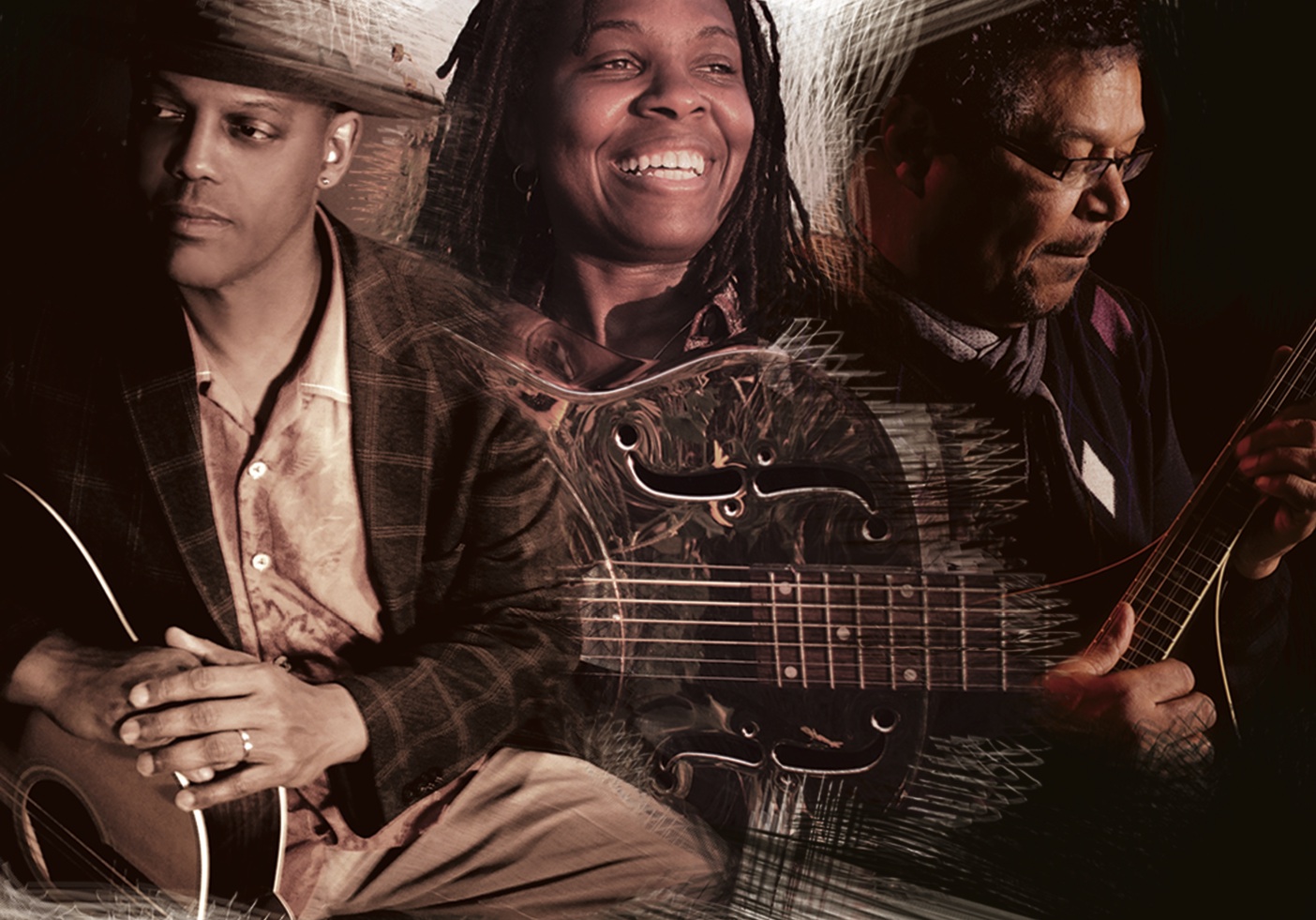
Date: May 23, 2023

